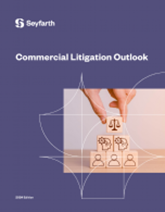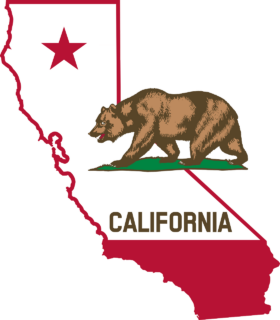
Seyfarth proudly announced the annual installment of our Commercial Litigation Outlook and Webinar Series, featuring insights about litigation issues and trends to expect in 2024 from our nationally recognized team. The Trade Secrets practice group is pleased to present its 2024 outlook piece, “Guarding Secrets: Navigating the Shifting Landscape of Restrictive Covenants in 2024,” available here, along with a
Continue Reading Navigating Legal Minefields: Insights from Seyfarth’s 2024 Commercial Litigation Outlook


 In this unprecedented time, businesses are, more than ever, implementing and rapidly rolling out programs for remote or at-home work by employees. The quick changes in local and state governmental “shelter in place” instructions and Public Heath directives have placed significant strains on remote networks and caused local shortages of laptop computers at office supply and electronic stores across the country.
In this unprecedented time, businesses are, more than ever, implementing and rapidly rolling out programs for remote or at-home work by employees. The quick changes in local and state governmental “shelter in place” instructions and Public Heath directives have placed significant strains on remote networks and caused local shortages of laptop computers at office supply and electronic stores across the country. Attorney General Becerra’s office posted the
Attorney General Becerra’s office posted the  In our May blog post, we took issue with the broadcast statement that ‘consumer privacy law was sweeping the country and that other states were jumping on the California Consumer Privacy Law (CCPA) bandwagon to enact their own state law.’ The problem as we saw it, was that the truth behind these sensationalistic statements was a bit more nuanced than people were led to believe. Most states, we found, that introduced consumer privacy legislation simply did not follow through, either by outright killing the legislation (MS) or by taking a step back with a wait and see approach (see TX). Nevada, by contrast, did neither. Instead, its legislature enacted its own consumer privacy solution, through SB 220, or as we call it, ‘the limited privacy amendment.’ We’ve opted to discuss Nevada’s approach here primarily because of its more restrictive application online and because its October 1, 2019, operational date is a full three months before the CCPA becomes operational.
In our May blog post, we took issue with the broadcast statement that ‘consumer privacy law was sweeping the country and that other states were jumping on the California Consumer Privacy Law (CCPA) bandwagon to enact their own state law.’ The problem as we saw it, was that the truth behind these sensationalistic statements was a bit more nuanced than people were led to believe. Most states, we found, that introduced consumer privacy legislation simply did not follow through, either by outright killing the legislation (MS) or by taking a step back with a wait and see approach (see TX). Nevada, by contrast, did neither. Instead, its legislature enacted its own consumer privacy solution, through SB 220, or as we call it, ‘the limited privacy amendment.’ We’ve opted to discuss Nevada’s approach here primarily because of its more restrictive application online and because its October 1, 2019, operational date is a full three months before the CCPA becomes operational. In just a few short months, on January 1, 2020, the California Consumer Privacy Act (CCPA) is set to go into effect, establishing new consumer privacy rights for California residents and imposing significant new duties and obligations on commercial businesses conducting business in the state of California. Consumer rights include the right to know what personal information a business is
In just a few short months, on January 1, 2020, the California Consumer Privacy Act (CCPA) is set to go into effect, establishing new consumer privacy rights for California residents and imposing significant new duties and obligations on commercial businesses conducting business in the state of California. Consumer rights include the right to know what personal information a business is